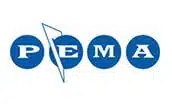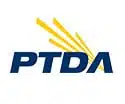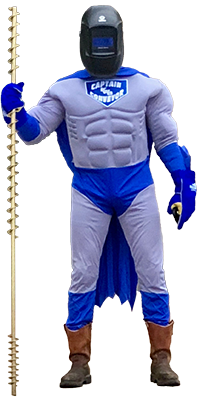Cost Savings – Repairing Paper Mill Screws
Paper Mill
Demopolis, AL
General Description of the Application
Paper production is one of the largest industries in the world as people regularly use paper-based products daily. Demand for paper products is increasing as the use of plastic products is reduced due to environmental concerns. As a result, efficiency and cost savings are crucial to a successful paper mill.
Screw conveyors are used throughout the paper making process. Depending on location in the process, many screw conveyors are constructed from 304, 316 or 317 stainless steel to combat the corrosive nature of the bulk materials and chemicals. Downtime can cost up to $300,000.00 per hour at a pulp mill or paper making facility. Plants must keep critical spare parts on hand in case of an unexpected failure. On a scheduled outage, critical screws are removed and replaced with spare screws. The screws that were removed are then sent out for repair or complete replacement. Most of the time, the screws can be refurbished to extend their life at a fraction of the cost of a completely new replacement.
Design Parameters of Application
- Product Type: Lime, Paper Pulp
- Material Density: 30-45 Lbs.per Cubic Foot
- Duty: 24 Hours per Day, 7 Days per Week
Advantages Provided by KWS
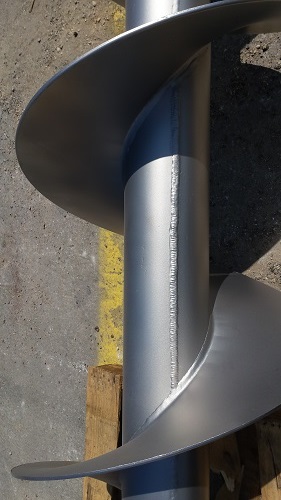
KWS Repaired Screw Looks Better Than New
When a potential repair screw is received by KWS, it is first evaluated to determine if a repair will be successful. A primary concern is maintaining wall thickness of the center pipe. While screw flights can be easily replaced, catastrophic failure can occur if the center pipe is not capable of handling the load. The center pipe transmits the full torque of the drive unit and is also subject to bending forces. KWS performs ultrasonic testing to determine wall thickness. If there are excessive wear areas of the center pipe that do not meet minimum requirements, the screw is scrapped and a new one manufactured.
Once ultrasonic testing is complete and the center pipe deemed acceptable, the KWS team moves forward with a detailed inspection of the screw. Flight dimensions are recorded and compared to original specifications. All welds are evaluated by a Certified Weld Inspector (CWI) on staff at KWS. Any non-conformity is evaluated with non-destructive testing. A complete, detailed drawing of the screw is created by the KWS Engineering Department so new screws can be ordered at any time.
Damaged screw flights are replaced and suspect welds repaired. Screw flights with hard surfacing, that have worn down due to excess abrasion, can be resurfaced by adding additional hard surfacing material to resist future flight wear. After the evaluation and repairs are completed, all screws are straightened in a lathe to within 0.015-inch Total Indicated Runout (TIR) at the bearing locations. Proper straightness and alignment decrease the chance of fatigue failure in a screw conveyor, ensuring a long-lasting solution.
Testimonial
"Repairs keep us running at a fraction of the cost of replacing the screws, not to mention the downtime incurred when a screw suffers a catastrophic failure in the middle of the night."
Paper Mill Reliability Engineer
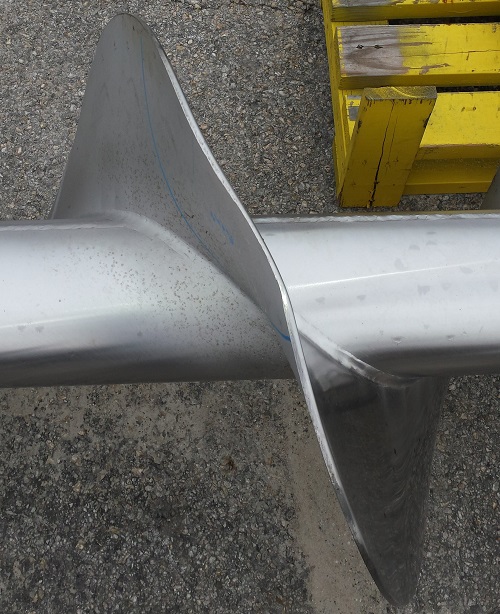
Screw Flights are Bent and Welds are Worn Away
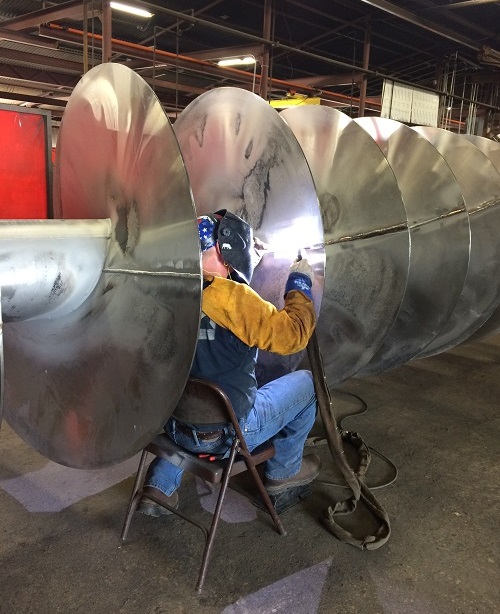
All Welds are Repaired by ASME Certified Welders
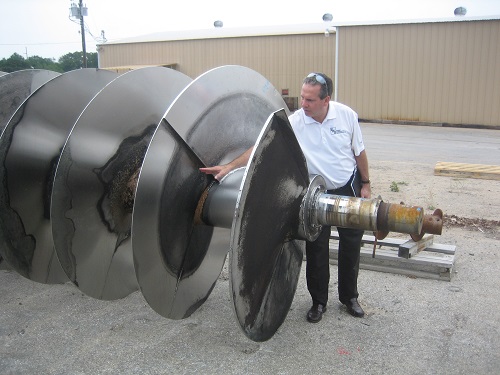
Large Diameter Steaming Vessel Screw is Evaluated at KWS
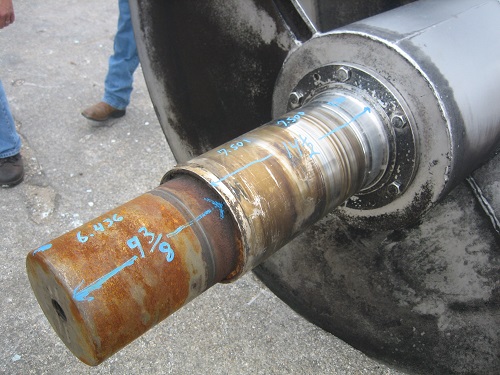
Tail Shaft Dimensions are Documented and Drawings Created
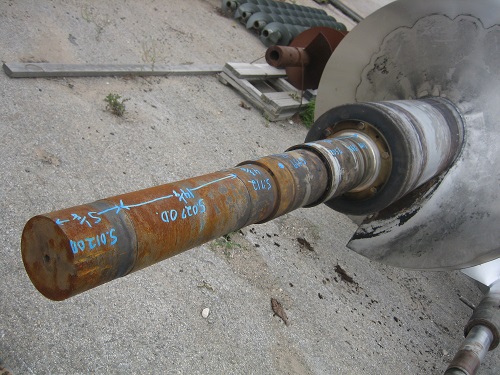
Bearing and Shaft Seal Surfaces Can Be Repaired to New Conditions
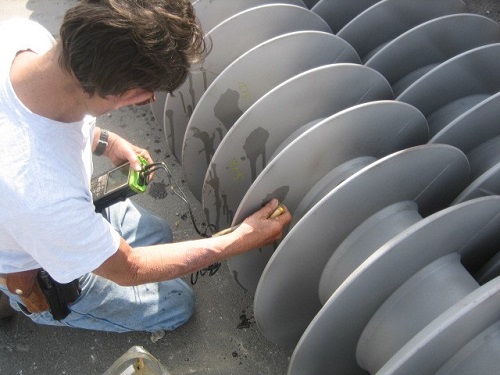
Pipe is Ultrasonically Tested to Determine Wall Thickness


